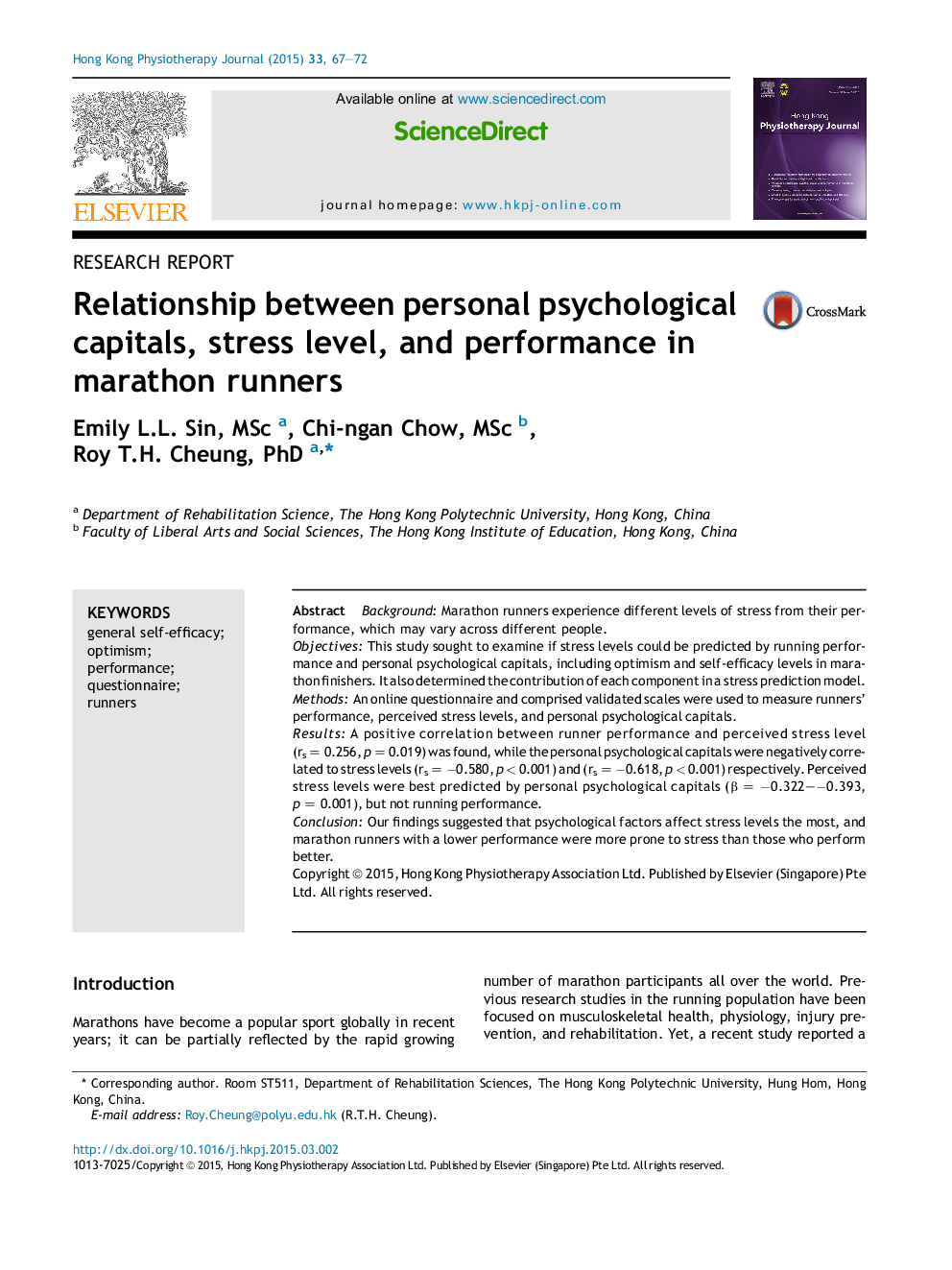| Article ID | Journal | Published Year | Pages | File Type |
|---|---|---|---|---|
| 5863485 | Hong Kong Physiotherapy Journal | 2015 | 6 Pages |
BackgroundMarathon runners experience different levels of stress from their performance, which may vary across different people.ObjectivesThis study sought to examine if stress levels could be predicted by running performance and personal psychological capitals, including optimism and self-efficacy levels in marathon finishers. It also determined the contribution of each component in a stress prediction model.MethodsAn online questionnaire and comprised validated scales were used to measure runners' performance, perceived stress levels, and personal psychological capitals.ResultsA positive correlation between runner performance and perceived stress level (rs = 0.256, p = 0.019) was found, while the personal psychological capitals were negatively correlated to stress levels (rs = â0.580, p < 0.001) and (rs = â0.618, p < 0.001) respectively. Perceived stress levels were best predicted by personal psychological capitals (β = â0.322-â0.393, p = 0.001), but not running performance.ConclusionOur findings suggested that psychological factors affect stress levels the most, and marathon runners with a lower performance were more prone to stress than those who perform better.
